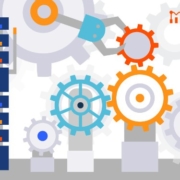As more companies realize the benefits of an API-first mindset and treating their APIs as products, there is a growing need for good API product management practices to make a company’s API strategy a reality. However, API product management is a relatively new field with little established knowledge on what is API product management and what a PM should be doing to ensure their API platform is successful.
Many of the current practices of API product management have carried over from other products and platforms like web and mobile, but API products have their own unique set of challenges due to the way they are marketed and used by customers. While it would be rare for a consumer mobile app to have detailed developer docs and a developer relations team, you’ll find these items common among API product-focused companies. A second unique challenge is that APIs are very developer-centric and many times API PMs are engineers themselves. Yet, this can cause an API or developer program to lose empathy for what their customers actually want if good processes are not in place. Just because you’re an engineer, don’t assume your customers will want the same features and use cases that you want.






